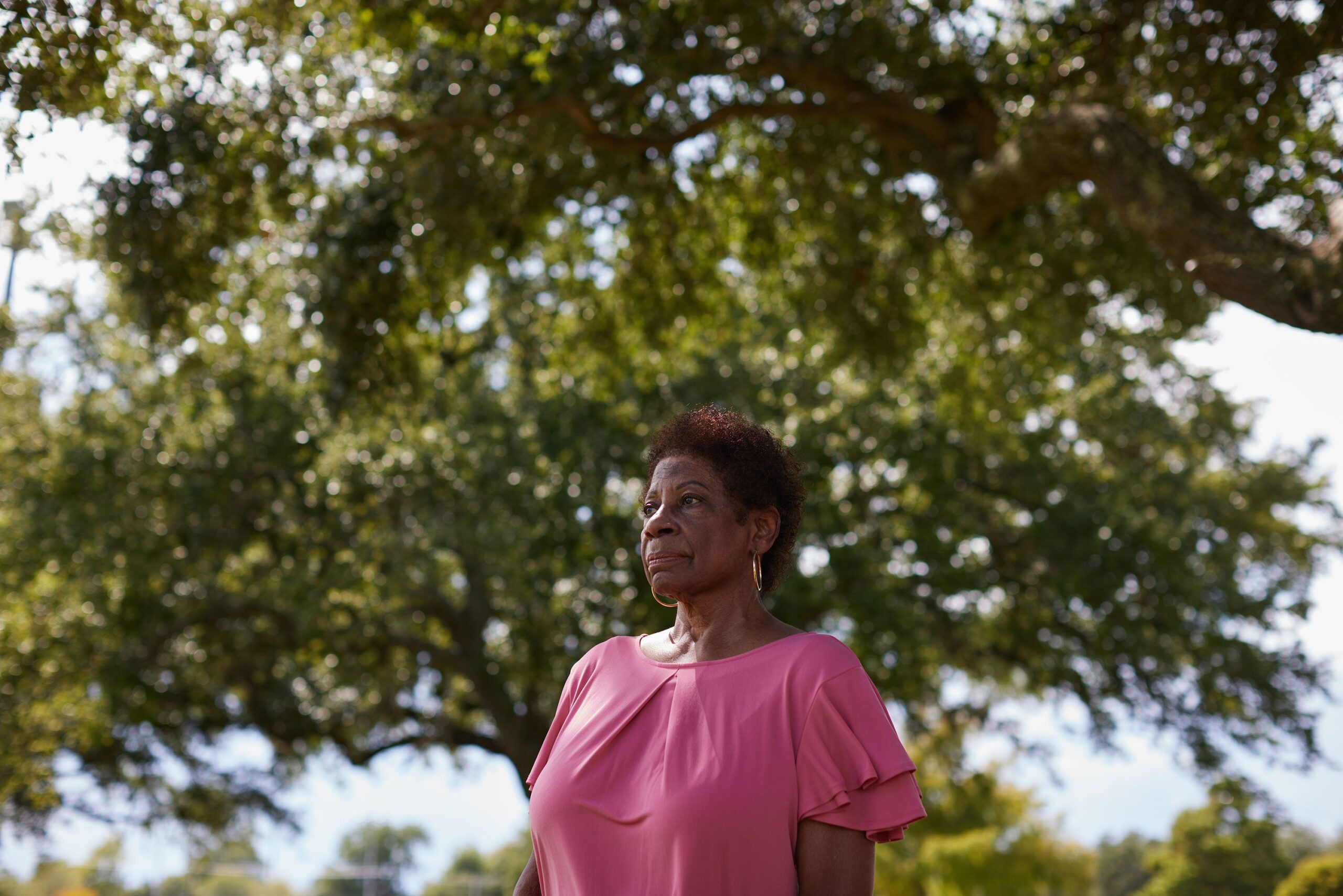Edna Courville, an 80-year-old resident of Galveston County, Texas, vividly recalls the 1960 presidential election. She remembers her mother’s outrage as they prepared for the state’s Jim Crow-era literacy test, a notorious barrier to voting before the 1965 Voting Rights Act aimed to eradicate racial discrimination in US elections. Courville’s mother was particularly incensed that the test administrator, a barely literate white man, would be assessing her knowledge of the US Constitution’s preamble.
Challenging the Erosion of Voting Rights
Today, Courville is a plaintiff in a lawsuit brought by a local branch of the NAACP and other groups. The lawsuit seeks to overturn a Republican decision that eliminated the only minority-dominant precinct in Galveston County, where Courville has lived for over 50 years. The retired social worker views the GOP-controlled Galveston County Commissioners Court’s decision to dismantle her precinct as an attempt to strip away their rights.
Redistricting and the Fight for Representation
The Galveston case is part of a broader legal battle across the South. Critics argue that Republicans have used the redistricting process following the 2020 census to maintain their dominance in state and local politics, to the detriment of voters of color. This is despite the region becoming increasingly diverse and politically competitive. However, GOP officials defend the maps, arguing they align with long-standing redistricting practices and recent US Supreme Court decisions to limit race-conscious policies.
The High Stakes of Redistricting Battles
The outcomes of these battles could determine control of government at various levels, from the US House of Representatives to local communities, after November’s elections. These cases also raise new questions about the reach and continued power of one of the nation’s landmark civil rights laws. There are emerging challenges to the Voting Rights Act, including whether private individuals like Courville have the authority to bring legal action to stop alleged violations of the law.
The Supreme Court’s Role in Voting Rights
These protracted fights are unfolding during the first decennial round of redistricting since the US Supreme Court in 2013 weakened a key part of the Voting Rights Act. The preclearance provision of the federal law required states and local jurisdictions with a history of racial discrimination to obtain federal or court approval before enacting new voting laws. However, the high court ruled that the country had changed and that intense federal oversight of elections in these places was no longer warranted.
Section 2 of the Voting Rights Act: A Tool for Justice
Now, one of the main tools remaining for those seeking to enforce the promise of the Voting Rights Act falls under Section 2 of the law, which prohibits discrimination based on race. However, unlike preclearance, challenges to discriminatory voting laws and racial gerrymanders under Section 2 can only be brought after those laws are enacted.
Alabama’s High-Profile Section 2 Case
In a high-profile Section 2 case, the US Supreme Court upheld a challenge brought by activists and civil rights groups to a congressional map in Alabama. The court agreed with a lower court that the state’s Republican-controlled legislature had violated the Voting Rights Act by creating just one Black-majority district out of seven US House seats, despite Black Alabamians making up about 27% of the state’s population.
Redistricting Cases Spring to Life
Redistricting cases that had been on hold until the Supreme Court ruled in the Alabama case, Allen v. Milligan, sprang to life in the months since, with varying results. The high court’s ruling faced immediate pushback from state legislators who quickly passed a new map that defied the federal court’s order to create a second Black-majority district or “something quite close to it.”
New Challenges to the Voting Rights Act
New voting rights disputes have erupted, most notably in the US Court of Appeals for the 8th Circuit, and these could narrow the scope of the Voting Rights Act. A panel of appellate judges on the 8th Circuit recently affirmed a ruling by a federal judge in Arkansas that private organizations, like the NAACP and the ACLU, and individuals, like Courville and Milligan, have no authority to bring lawsuits under Section 2. The power rests entirely with the US Justice Department, the panel held in a 2-1 decision.
The Future of Voting Rights
The future of voting rights remains uncertain. The disputes in Georgia and Galveston County are sparking further legal debate over whether the Voting Rights Act permits these coalition districts. Appellate courts are divided on that question. The majority on the Galveston commission has appealed, arguing that the Voting Rights Act “does not protect minority coalitions.”
Galveston County’s Redistricting Showdown
The current legal confrontation in Galveston County stands at the center of the latest redistricting showdown in this Gulf Coast community of some 350,000 people. More than a decade ago, when preclearance was still in effect for Texas, the Justice Department rejected an effort to redraw the county’s electoral precincts, on the grounds that it would dilute minority power. However, the county’s redistricting process after the 2020 census has drawn headlines and lawsuits.
The Fight for Justice Continues
Despite the setbacks, Courville and others remain determined to fight for their rights. “There’s no justice,” Courville told CNN after the Supreme Court’s action. “It’s like they don’t care what they do to people.” And, after a lifetime of voting, Courville said she’s considering sitting out the upcoming local elections. “You get tired of hitting these brick walls.”

